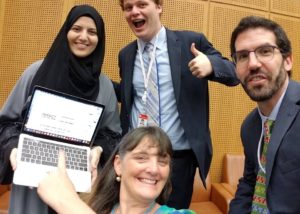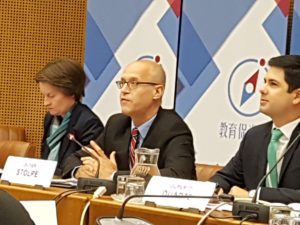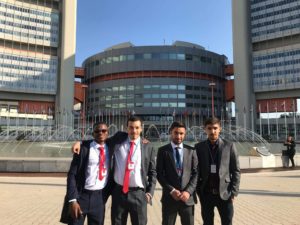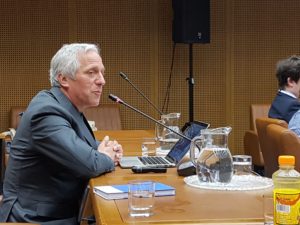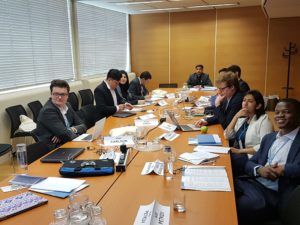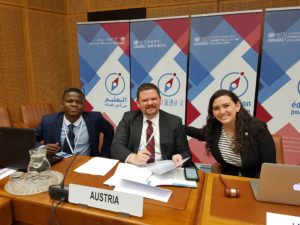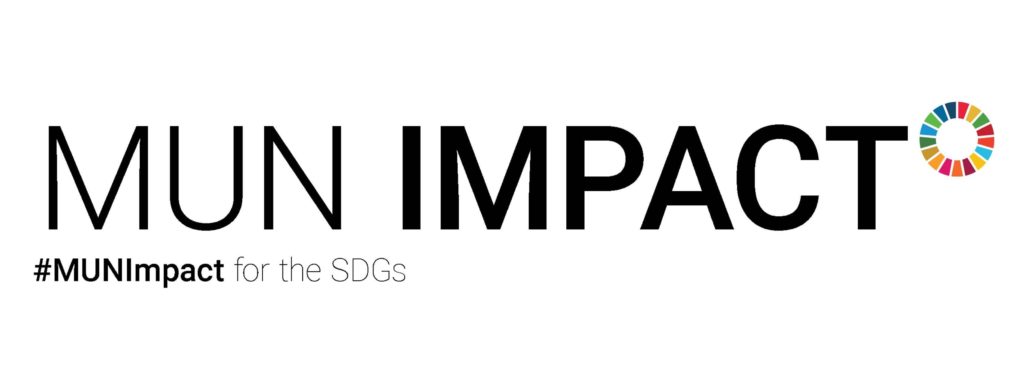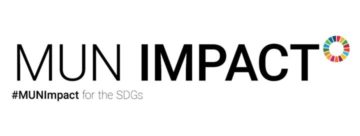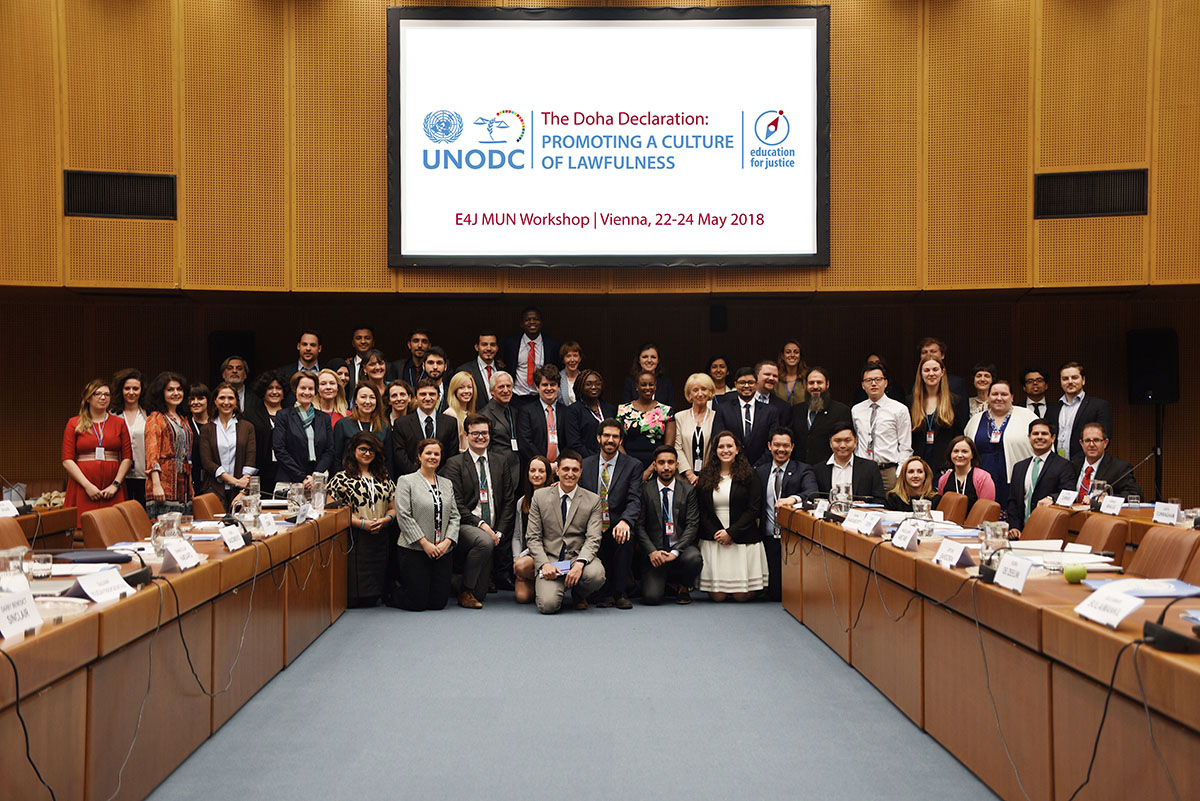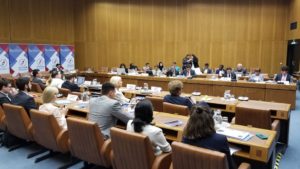 MUN conference managers, educators, academics and UN field officers gathered at the United Nations in Vienna this past May and held a series of conversations that had never before taken place. There was a palpable sense of history being made. We had been invited to participate in UNODC’s Education for Justice MUN workshop where we had the opportunity to get to know one another, look for ways we could support each other’s work, and most importantly, to figure out how to best educate MUN delegates on UNDOC mandates. With the help of the wonderful Best Delegate team, we spent three days in enriching conversations, both during the day, over lunch and breaks, and well into each evening.
MUN conference managers, educators, academics and UN field officers gathered at the United Nations in Vienna this past May and held a series of conversations that had never before taken place. There was a palpable sense of history being made. We had been invited to participate in UNODC’s Education for Justice MUN workshop where we had the opportunity to get to know one another, look for ways we could support each other’s work, and most importantly, to figure out how to best educate MUN delegates on UNDOC mandates. With the help of the wonderful Best Delegate team, we spent three days in enriching conversations, both during the day, over lunch and breaks, and well into each evening.
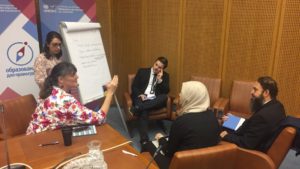
E4J, with generous funding from the state of Qatar through the 2014 Crime Congress in Doha, decided that a powerful way to educate youth on UNODC mandates (many of them linked to SDG 16: Peace, Justice and Strong Institutions) was through MUN. The E4J team validated the MUN community by asking for input, and going back to their drawing board a number of times in 2017 to refine and perfect a series of resources that would be used on a global scale. By bringing a cross section of participants to Vienna, field officers and UN officials began to appreciate the power of this enormous MUN network. And MUN programs gave serious thought to how to best guide research, discussions and debate around the things the UN wants all of us to be more knowledgeable about.
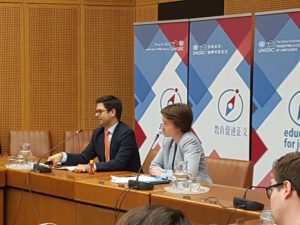 Yet for the uninitiated, most are surprised to know the degree to which the UN and the MUN Community have very rarely engaged one another. The United Nations and Model United Nations inhabit two different ecosystems. UN officials who run UN programs are specialists, technocrats in the best sense of the word. And educators and others who run MUN programs, whether those are big conferences or small MUN clubs, usually have a different set of goals and objectives. Often these do not overlap. With no central organization setting rules and procedures, no one sanctioned method for choosing debate topics and finding resources to support delegate training and research, the MUN community begins to resemble a collection of nation states, each MUN program with its own rules and procedures, a favored approach to engaging with their followers, and at times fierce brand loyalty to their conference. And by and large, most have preferred it that way. Not surprisingly, in this environment Model UN programs hav had few, if any, opportunities to come together and discuss larger issues within their global community. Model United Nations has never been able to speak with one voice, because the conversation has been about differences and what sets us apart.
Yet for the uninitiated, most are surprised to know the degree to which the UN and the MUN Community have very rarely engaged one another. The United Nations and Model United Nations inhabit two different ecosystems. UN officials who run UN programs are specialists, technocrats in the best sense of the word. And educators and others who run MUN programs, whether those are big conferences or small MUN clubs, usually have a different set of goals and objectives. Often these do not overlap. With no central organization setting rules and procedures, no one sanctioned method for choosing debate topics and finding resources to support delegate training and research, the MUN community begins to resemble a collection of nation states, each MUN program with its own rules and procedures, a favored approach to engaging with their followers, and at times fierce brand loyalty to their conference. And by and large, most have preferred it that way. Not surprisingly, in this environment Model UN programs hav had few, if any, opportunities to come together and discuss larger issues within their global community. Model United Nations has never been able to speak with one voice, because the conversation has been about differences and what sets us apart.
The E4J MUN workshop provided an opportunity to change that. Parking our differences at the door, the participants discussed ways that we could support one another. We needed to get to know one another, to understand the diversity and goals of the MUN community, and to realize that field offices had expertise to share but very real constraints in its time and resources. The UN learned that a good many Model UN practitioners want to support the UN and its work, and MUN practitioners learned that UN agencies and programs welcomed support in engaging a wide swath of civil society stakeholders. And in that sweet spot of convergence, an entirely new conversation emerged.
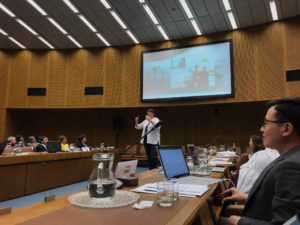 MUN Impact had a special role in this converging dialogue, because in reframing a much richer and wider conversation, we were able to address an important underlying tension within the MUN community. For all the personal impact that delegates experience through their MUN experience, that experience often ends when the gavel comes down at the closing ceremony. But many educators and conference organizers, and delegates themselves, often wish for more…more action, more relevance to their community, and a sense of service to support what they have learned through MUN. MUN Impact was able to share some ideas and resources and most importantly, stories of what action plus MUN, in the service of the real UN, might look like. To bring the stories of real MUN delegates doing real work to advance the UN’s agenda was validating, powerful and eye opening. It was a glimpse into what was possible, and hopefully cemented action and service via Model UN squarely into the center of this emerging global discussion.
MUN Impact had a special role in this converging dialogue, because in reframing a much richer and wider conversation, we were able to address an important underlying tension within the MUN community. For all the personal impact that delegates experience through their MUN experience, that experience often ends when the gavel comes down at the closing ceremony. But many educators and conference organizers, and delegates themselves, often wish for more…more action, more relevance to their community, and a sense of service to support what they have learned through MUN. MUN Impact was able to share some ideas and resources and most importantly, stories of what action plus MUN, in the service of the real UN, might look like. To bring the stories of real MUN delegates doing real work to advance the UN’s agenda was validating, powerful and eye opening. It was a glimpse into what was possible, and hopefully cemented action and service via Model UN squarely into the center of this emerging global discussion.
We DID make history in Vienna, and in a small but important way started a new conversation between the United Nations and Model UN community, long overdue, exciting, and filled with potential. Thank you to the E4J team for bringing us together and starting this valuable conversation. The fruits of this collaboration are beginning to show signs of taking hold. The 2018-19 MUN season is sure to be an exciting one.
